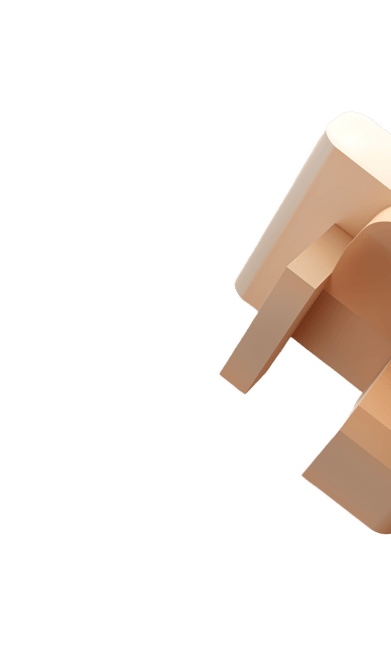95% LTV mortgages
Compare 5% deposit mortgage deals and learn more about 95% LTV mortgages with insights from our expert advisors.
Compare 95% LTV mortgage deals
Getting on to the property ladder can be hard, but using a 95% mortgage means you only need to save a 5% deposit. Find out if a 5% deposit mortgage is the right option for you.
Your home may be repossessed if you do not keep up repayments on your mortgage.
What is a 95% LTV mortgage
A 95% loan-to-value (LTV) mortgage is a loan that covers 95% of the cost of the home you want to buy. You need to provide a 5% deposit yourself, and the mortgage covers the rest.
For example, if you want to buy a home for £300,000, a 95% mortgage would mean you borrow £285,000 (95%) and then put down a deposit of £15,000 (5%).
95% is the highest LTV widely available, although a few lenders can offer 100% mortgages. They often have certain restrictions and higher interest rates than lower LTV mortgages.
Can I get a 95% LTV mortgage?
Several lenders offer 95% mortgages, but they’re less common than lower LTV mortgages. They’re considered risky because there’s an increased chance that you could fall into negative equity - where the size of your mortgage is more than the value of your home.
When this happens, the mortgage lender would be unable to recoup the money you’ve borrowed if your home was repossessed. Lenders try to offset the risk by charging a higher interest for high LTV mortgages, like 95%.
Getting approved for a 95% LTV mortgage depends on several factors, including:
Your credit score: Lenders will perform a hard check on your credit report when working out whether or not to give you a loan. A good credit score is usually needed to get a 95% mortgage.
Your affordability: When you apply for a mortgage, lenders will look at your income and expenditure to assess whether you can afford your repayments. They’ll also stress test your finances to check if you can afford your repayments if interest rates increase.
The purchase price: You can only borrow what you can comfortably afford to repay. You can use a mortgage calculator to work out how much you might be able to borrow based on your income and deposit.
Your deposit: You’ll need at least a 5% house deposit saved and accessible. Make sure you’ve budgeted for the costs associated with buying a house, like solicitors fees and stamp duty.
There might also be some extra restrictions put in place by the lender for 95% mortgages. These can include:
A limit on how much you can borrow, e.g. no more than £500,000
A limit on the property price, e.g. no more than £600,000
Not offered on a new build purchase
Repayment mortgage only (not interest-only)
How to get a 95% LTV mortgage
The process of getting a 95% LTV mortgage is broadly the same as for any other mortgage. Here’s what you’ll need to do:
Use a mortgage calculator to estimate how much you could borrow and what your monthly repayments might be.
This will help you understand what size deposit you’ll need to get a 95% LTV mortgage and what type of property you can afford. You will also need to budget for additional costs associated with getting a mortgage and buying a house, like solicitors fees and stamp duty.
You’ll need to get a Mortgage in Principle (also known as a Decision in Principle) before you start your property search. This document gives an approximate idea of what you’ll be able to borrow based on a soft credit check and some information like your income.
You usually need to have a Mortgage in Principle before making an offer because it shows the estate agent and seller that you can afford the offer you’re making.
Once you’ve got your Mortgage in Principle and found a property you’re interested in, you can submit an offer.
Your offer should be no more than the estimated loan amount outlined in your Mortgage in Principle and the deposit you’ve saved up.
When you’ve had an offer accepted, you need to start your application for a 95% mortgage. Speak to one of our mortgage brokers, who can help you find the right deal and guide you through the application process. As part of the application, you’ll need to provide supporting documentation, including bank statements, payslips, and photo ID.
Your lender will value the property you want to buy and carry out a survey, which you may have to pay for. They do this to make sure the value of the property matches the purchase price and there are no unexpected problems.
Once you’ve passed the lender’s eligibility checks and the valuation matches the purchase price, your lender will issue a formal mortgage offer.
This will outline your terms and conditions and will include your loan amount and how much your monthly payments will be.
You’ll need to instruct a conveyancing solicitor to sort the legal side of your purchase, and they will exchange contracts with the seller’s solicitor. Your mortgage lender will then release the mortgage funds to your solicitor to pay for the property.
On the completion date, the remaining funds will be transferred to the seller and ownership of the property will be legally transferred to you.
Once you’ve completed your house purchase, you will start making your monthly mortgage repayments.
Our expert says...
“A 95% LTV mortgage means you can buy a home with just a 5% deposit. They can help you get on the property ladder faster, but they usually come with higher fees.
They’re also not widely offered and come with extra restrictions, so saving a larger deposit could help you access better deals. Talk to one of our expert mortgage brokers to discuss your options and whether a 5% deposit mortgage is right for you.”
95% LTV mortgage FAQs
A 95% mortgage can be a viable option to get onto the property ladder if you’re struggling to build up a bigger deposit. If you’re renting, it could save you money in the long run to buy and start paying off a mortgage.
However, it’s important to remember that high LTV mortgages come with higher interest rates and larger monthly repayments. They can also be riskier because if the value of your property falls, you could find yourself in negative equity (where your mortgage balance is higher than your property’s value).
95% mortgages for first-time buyers are a popular option because getting a 5% deposit can be easier. It also means you can get onto the property ladder faster than waiting to save up a larger deposit.
If you have a deposit worth 5%, and you meet the lender’s eligibility criteria, then you should be able to get a 95% mortgage. However, as they aren’t as common as lower LTV mortgages and tend to come with the highest interest rates, you might consider saving for a larger deposit to get access to better deals.
The amount you can borrow will depend on your financial situation and affordability.
Lenders usually base what you can borrow on your annual income, typically offering 4 or 4.5 times this figure. So, if you earn £35,000 a year, you could borrow £157,500 based on 4.5 times your salary.
However, they also look at your credit score, outgoings and debts to check if you can afford the repayments. This can also impact how much you can borrow.
You can use our mortgage calculator to work out how much you might be able to borrow.
A 95% mortgage can come with a range of benefits, including:
Getting on to the property ladder with a relatively small deposit
Opportunity to secure your own home sooner and stop renting
Potential to build up equity if your property price goes up over time
Although 95% mortgages can be a helpful way to get your first home, they can come with some drawbacks, such as:
Interest rates can be high compared to lower LTV mortgages
Higher monthly repayments due to a bigger loan and higher interest rates
Changes in property prices could mean you risk falling into negative equity
The UK government launched a 5 % deposit scheme in April 2021, where they would guarantee 95% LTV mortgages offered by high street lenders.
It was launched during the COVID-19 pandemic and was designed to help encourage banks and building societies to offer 95% mortgages. If a borrower cannot meet their repayments, the government guarantees the mortgage, reducing the risk to the lender.
The scheme is available on properties worth up to £600,000 and applies to mortgage applications submitted by 31 December 2023.
Saving for a larger deposit of 10% or even 20% means you’ll be able to access better deals and more choice. You’ll also own more equity in your property and pay less in interest over the lifetime of your mortgage.
However, a 95% mortgage can be an effective way of quickly getting onto the property ladder. With the cost of renting increasing, buying a property and putting your money towards paying off a mortgage as soon as possible could save you money in the long run compared to saving up a larger deposit.
Get a mortgage with Better.co.uk today
Better.co.uk is a fee-free mortgage broker
4.8-star Trustpilot rating from over 9,000 reviews
Compare mortgage deals from over 100 lenders
Get matched with the right legal team with SmartBuyer
Fund a big expense with a Homeowner Loan
What people are saying about Better.co.uk...

Important info & marketing claims
You may have to pay an early repayment charge to your existing lender if you remortgage. Your savings will depend on personal circumstances.
Your home may be repossessed if you do not keep up repayments on your mortgage.
*89% of customers will be better off using Better.co.uk rather than going direct with their lender. Read more on our marketing claims page.
We can't always guarantee we will be able to help you with your mortgage application depending on your credit history and circumstances.
Average mortgage decision and approval times are based on Better.co.uk's historic data for lenders we submit applications to.
Tracker rates are identified after comparing over 12,000 mortgage products from over 100 mortgage lenders.
As of January 2023, Better.co.uk has access to over 100 lenders. This number is subject to change.
For buy-to-let landlords, there's no guarantee that it will be possible to arrange continuous letting of a property, nor that rental income will be sufficient to meet the cost of the mortgage.

